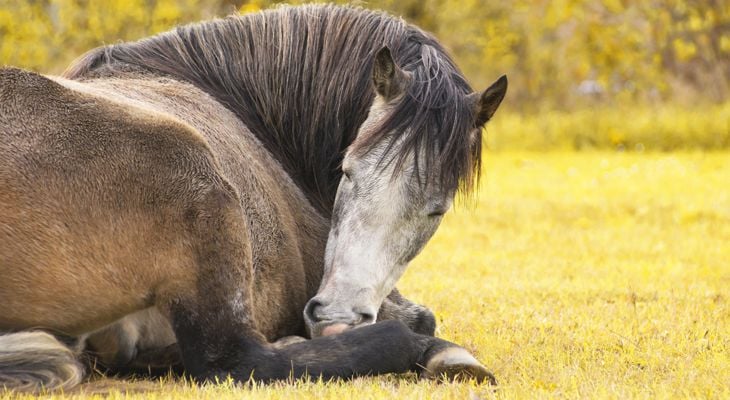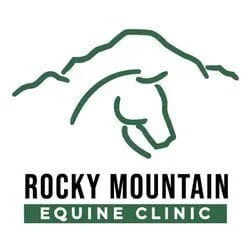
A seizure is caused by a period of abnormal electrical activity in the brain. Seizures tend to come on suddenly and end by themselves. They also sometimes occur again. There are three main types of seizures:
- Partial (or focused) seizures affect one part of the brain, which, in turn, leads to symptoms in only one part of the body. This kind of seizure usually lasts only a few seconds. Symptoms include twitching in the limbs or face, running in a circle compulsively or self-harming behavior. A seizure can start out as focused and then become generalized.
- Generalized seizures affect a larger area of the brain, which then affects the entire body. These are the most common type of seizure in horses and can last from five to 60 seconds. A horse having a generalized seizure may fall on its side, make twitching movements with its limbs or defecate, urinate or salivate during the seizure.
- Status epilepticus is a type of seizure in which several generalized seizures occur rapidly one after the other. These, however, are uncommon in horses.
Causes of Seizures
Seizures in horses can be caused by something going on inside the brain (intracranial disease), such as a brain tumor or brain injury. Problems outside the brain can also lead to seizures (extracranial disease), including toxins or metabolic problems.
The most common causes of seizures in foals less than 2 weeks of age include:
- Bacterial meningitis
- Brain injury
- Neonatal maladjustment syndrome
In foals less than 1 year of age, the most common causes of seizures include:
- Brain injury
- Idiopathic epilepsy
Adult horses have a higher threshold for seizures, which means more brain damage must occur before they have a seizure. The most common causes of seizures in horses over 1 year of age include:
- Brain injury
- Ingestion of toxins
- Liver disease
- Tumors (in horses over 7 years of age)
Treatment of Seizures
Diagnosing a horse with seizures can be difficult because an equine veterinarian is often not present during a seizure. The following may be used to identify the underlying cause:
- Medical history, including symptoms, prior illnesses, vaccinations and diet
- A physical exam to look for signs such as head injury, infection or fever
- A neurologic exam to check mental state, posture and gait
- Laboratory tests on blood and urine
- Imaging tests, such as X-rays, a CT scan or MRI, to look for signs of head injury
Treatment depends upon the underlying cause of the seizures — ingestion of toxins will be treated differently than a head injury will be. Treatment options for seizures include:
- Anticonvulsant medication to reduce seizures, such as diazepam, pentobarbital and phenobarbital
- Drugs that help maintain blood flow to the brain and reduce damage to the brain tissues
- Corticosteroids (anti-inflammatory drugs) to stabilize the membranes of the brain cells
If your horse has had a seizure, contact us right away. We will examine your horse and suggest suitable treatment options.
